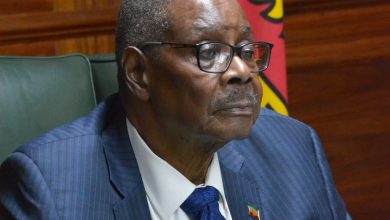20 fuel tankers drivein as crisis deepens
Mist surrounds stability of fuel availability in the country as just 20 out of 120 trucks that had loaded supplies in Tanzania by Friday crossed into Malawi on Sunday.
The situation is coming at a time long queues of desperate motorists continue to flood fuel service stations nationwide hoping to access either diesel or petrol.

Transporters that include those hauling fuel are trapped in Tanzania due to election-linked protests which have seen the Kasumulu Border, where Malawians clear their goods closed after protesters ransacked it.
In an interview yesterday, Malawi Energy Regulatory Authority (Mera) spokesperson Fitina Khonje said 20 trucks crossed the Songwe Border on Sunday.
“About 20 trucks crossed the border by Sunday under security escort. So you can see that other trucks are still in Tanzania. I don’t have statistics for today [Monday] in terms of how many trucks have crossed again,” she said.
Truck drivers The Nation interviewed yesterday from Kasumulu said while the security of their vehicles is guaranteed by Tanzanian security agents, they have difficulties in accessing basic needs such as food since no one is allowed to cross the border.
Thokozani Banda, a driver who has been at Kasumulu Border since last Wednesday, said yesterday that the situation remains chaotic, and was not sure about when it will improve.
“With President Samia Suluhu Hassan sworn in, we can only hope that the situation will improve the soonest, otherwise, we are in a difficult situation,” he said.
Karonga Police Station officer-in-charge Kelvin Mulezo said thousands of Tanzanian nationals were flocking to Malawi, not just to look for food, but seeking shelter as well.
“From the 29th to 31st October, many of them would come, and then go back after getting food. However, since November 1, the situation has changed, because most of these people are not going back to their country,” he said.
In a separate interview, Minister of Foreign Affairs and International Cooperation George Chaponda said they were waiting for a report from Southern African Development Community (Sadc) Electoral Observation Mission (SEOM) team leader Richard Msowoya to guide further interventions on the situation.
Meanwhile, in its preliminary report, SEOM has said that, in most areas, voters could not express their democratic will.
“Overall, the 2025 General Election in the United Republic of Tanzania fell short of the requirements of the Sadc Principles and Guidelines Governing Democratic Elections,” reads the report.
In an earlier interview, Transporters Association of Malawi spokesperson Frank Banda feared for loss of lives, business, especially for those dealing in goods such as fish, bananas, and ginger among others, but also loss of property.
The Nation spot-check in several districts from Saturday to yesterday established a grim picture of a country brought to a near standstill by an unrelenting supply crisis that has left some motorists stranded for days.
In Blantyre, most service stations have run out of fuel and long queues snaked for hundreds of metres at the few with stocks of either diesel or petrol.
Some drivers claimed to have spent up to three consecutive nights at service stations without success.
“I have been here for three days now, but to no avail. This is affecting our businesses, and we are beginning to lose hope,” said Steven Gwiliza a truck operator who claimed to have spent the days at Mount Pleasant Petroda Service Station.
Similar scenarios were established in Mzuzu, Zomba, Mangochi, Mulanje, Ntcheu, and Chikwawa.
In Chikwawa, out of five stations located between Ngabu and Dyeratu trading centres, only Puma at Dyeratu had petrol on Saturday with long queues.
Mera in a statement dated October 31 2025 attributed the situation to disruptions in the main fuel supply route through Tanzania, particularly Dar es Salaam and Tanga ports, following post-election violence in that country.
The energy regulator is on record as having stated that foreign exchange shortages continue to cripple fuel imports into the country, but expressed hope of stability following intervention from the Reserve Bank of Malawi.





